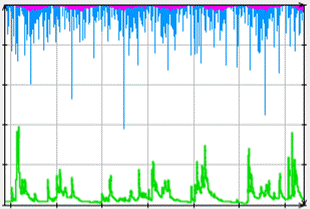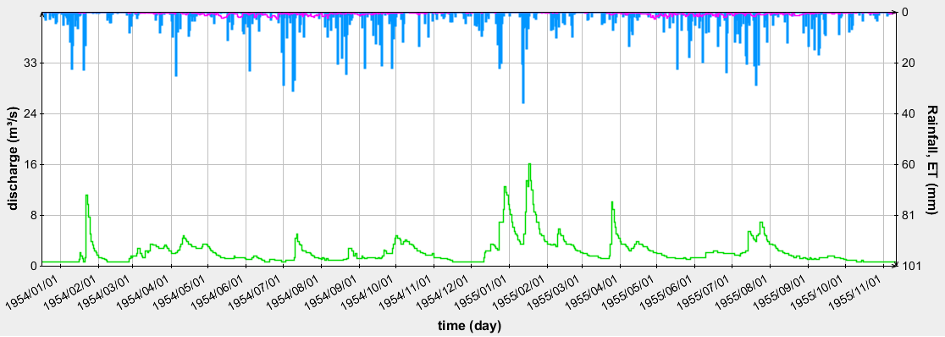
Quantification of the response of karst flow to long-term climate variability at Blautopf.
- Contact:
Prof. Dr. Nico Goldscheider
Dr. Nadine Göppert
M.Sc. Xinyang Fan - Startdate:
Apr. 2021
- Enddate:
Sep. 2022
As the second largest and most legendary karst spring in Germany, the Blautopf has a high economic and ecological conservation value. It is important to understand how this karst water resource has been and will be affected by ongoing climate change. In this study, we aim to contribute to this understanding by quantifying the response of karst water discharge to climate variability over the past 70 years at Blautopf.
The long-term historical records show that the daily discharge of Blautopf varies between 0.1m3/s and 32.6m3/s, with a mean value of 2.3m3/s. Due to its storage capacity, the aquifer responds to precipitation events with a time lag. This makes it difficult to predict the timing and intensity of peak discharge from the karst source, but this is highly relevant for sustainable water management. This task is made even more difficult by climate change, where precipitation patterns are changing and rising temperatures are affecting not only evaporation but also the timing of snowmelt.
Together with the IMPART project, which focuses on water quality at Blautopf, this study aims to use statistical analysis and time-series models to gain a deeper understanding of how water quantity has fluctuated and will fluctuate at this karst source. The research results can help develop measures to protect the karst aquifer to adapt to future climate.

Daily observed karst flow rate (green), precipitation (blue) and evaporation (pink) at Blautopf in 1954-1955.
